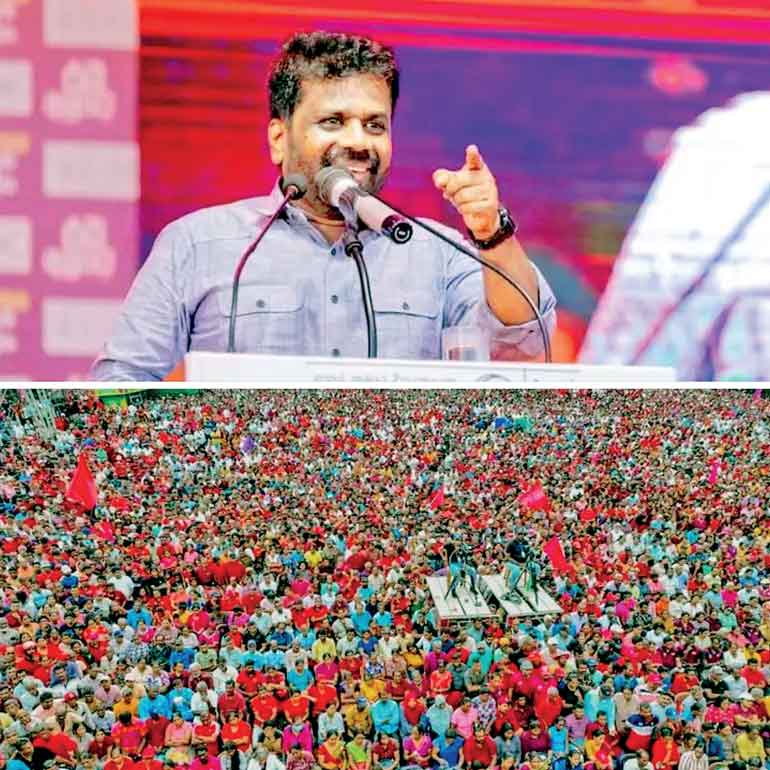Saturday Feb 07, 2026
Saturday Feb 07, 2026
Monday, 30 September 2024 00:20 - - {{hitsCtrl.values.hits}}

 The election of Jair Bolsonaro in Brazil shocked the country’s political establishment and sharply divided opinion. While some warned that Bolsonaro—a far-right populist who admired Brazil’s military dictatorship—posed a serious threat to democracy, others believed that Brazil’s strong institutions, including an assertive press and independent judiciary, would curb his authoritarian tendencies. This debate mirrors the global discussion surrounding populist leaders. Similarly, Sri Lanka is undergoing a political shift, with citizens demanding accountability from elites who have long failed them.
The election of Jair Bolsonaro in Brazil shocked the country’s political establishment and sharply divided opinion. While some warned that Bolsonaro—a far-right populist who admired Brazil’s military dictatorship—posed a serious threat to democracy, others believed that Brazil’s strong institutions, including an assertive press and independent judiciary, would curb his authoritarian tendencies. This debate mirrors the global discussion surrounding populist leaders. Similarly, Sri Lanka is undergoing a political shift, with citizens demanding accountability from elites who have long failed them.
President Anura’s meteoric rise as a “Leader of the People” to become Sri Lanka’s 9th Executive President is emblematic of this trend. However, his presidency faces significant challenges, particularly in balancing his populist appeal with the deep-seated demands of economic governance and institutional reform.
Change agenda
Managing the expectations of the 43% who voted for change will be Anura’s most pressing challenge. The NPP’s populist platform has raised high hopes among its supporters. However, delivering on promises such as economic reforms, poverty alleviation, anti-corruption measures, and eliminating waste in the public sector will not be easy, especially given the entrenched bureaucratic inefficiencies, limited human resources, and traditionally low compensation levels in the public sector.
Addressing Sri Lanka’s economic challenges—including debt management, inflation, exchange rate stability, and unemployment—will require sound fiscal policies. However, some of Anura’s populist measures may conflict with the austerity or structural reforms needed to stabilise the economy, potentially alienating his base.
Entrenched institutions, such as the administrative services, may resist reform efforts and oppose aligning with his agenda. Once the honeymoon period is over, Anura will confront the reality of significant capacity issues in the public sector. Changing the status quo will demand not only political will but also deft management of institutional inertia and opposition.
As an advocate for anti-corruption, President Anura must ensure transparency and accountability within his own administration. Any perception of internal corruption could seriously undermine his credibility and erode public trust.
Conclusion
Post-election, navigating Sri Lanka’s relationships with major global powers—especially China, India, and Western nations—will be crucial. Sri Lanka must strike a careful balance to ensure political and economic stability while safeguarding its national interests. Populist leaders often struggle to maintain their support over time. If economic conditions worsen or promised reforms fail to materialise, the same mass support that brought Anura to power could quickly turn against him. This is a common dynamic in South Asia, where voters can be unforgiving and impatient.
President Anura will need to navigate these challenges, balancing pragmatism with idealism while delivering tangible results to the public in the shortest possible time—especially with a critical election on the horizon. Business leaders and the media will inevitably have political views and back candidates they believe can deliver on key policies and programs. This is a natural part of the democratic process. However, what remains to be seen is whether the rest of Sri Lanka’s political class can also prove they deserve a place at the table in this new order. Ultimately, sufficient time and space should be given to President Anura to stabilise his administration and prepare to make good on his promises.
Reference:
https://www.ndtv.com/world-news/the-rise-of-anura-kumara-dissanayake-sri-lankas-new-president-6628769/amp/1